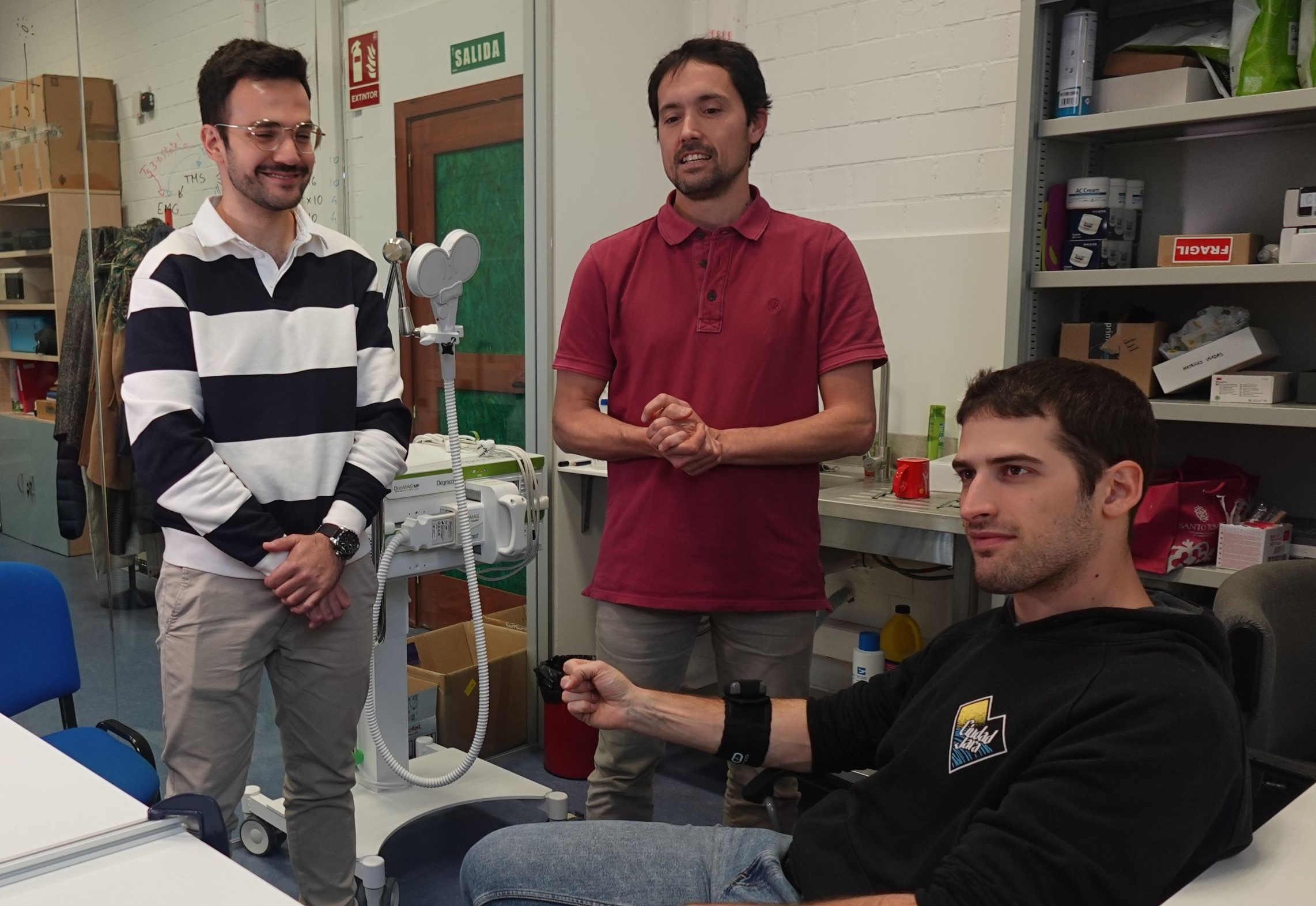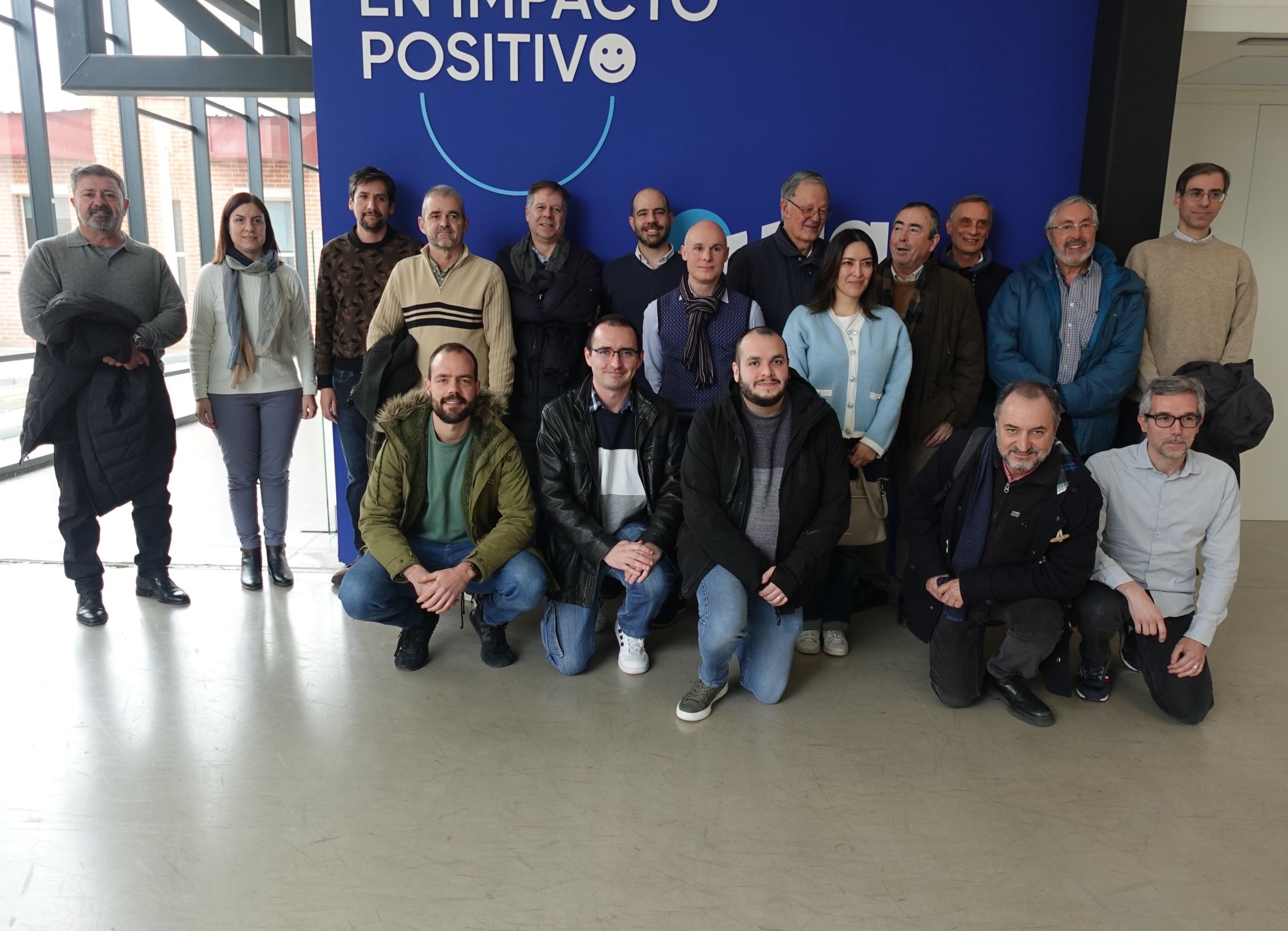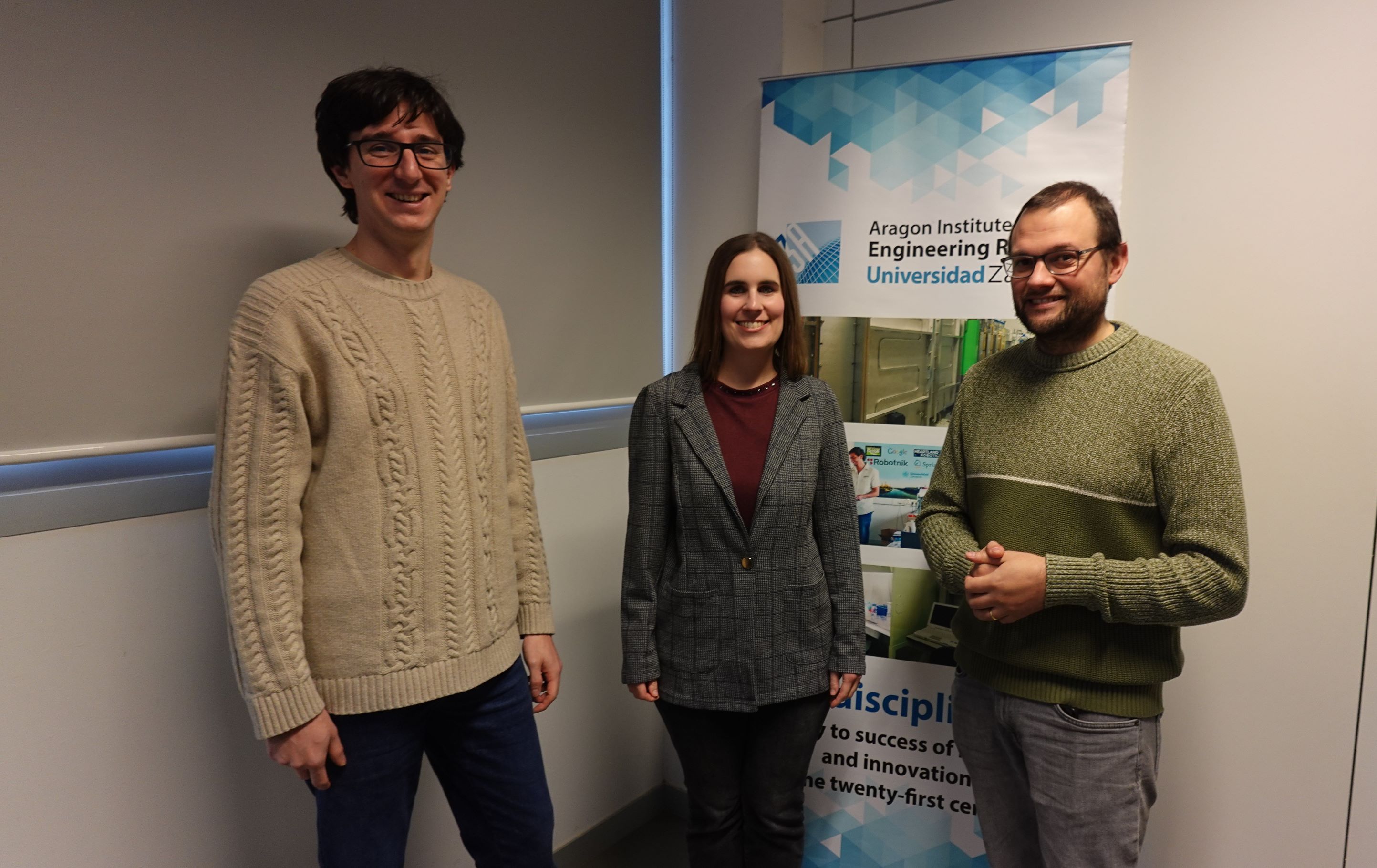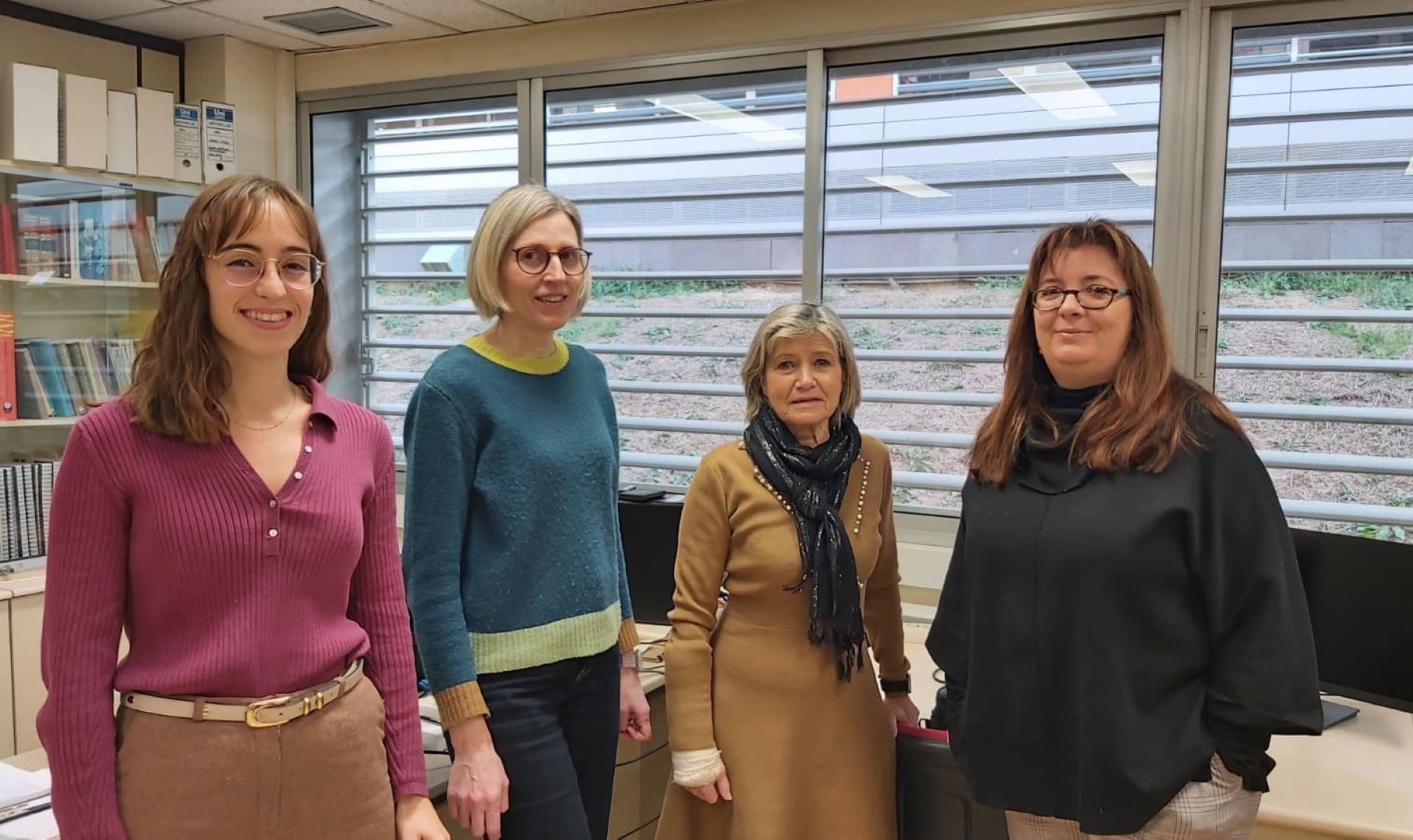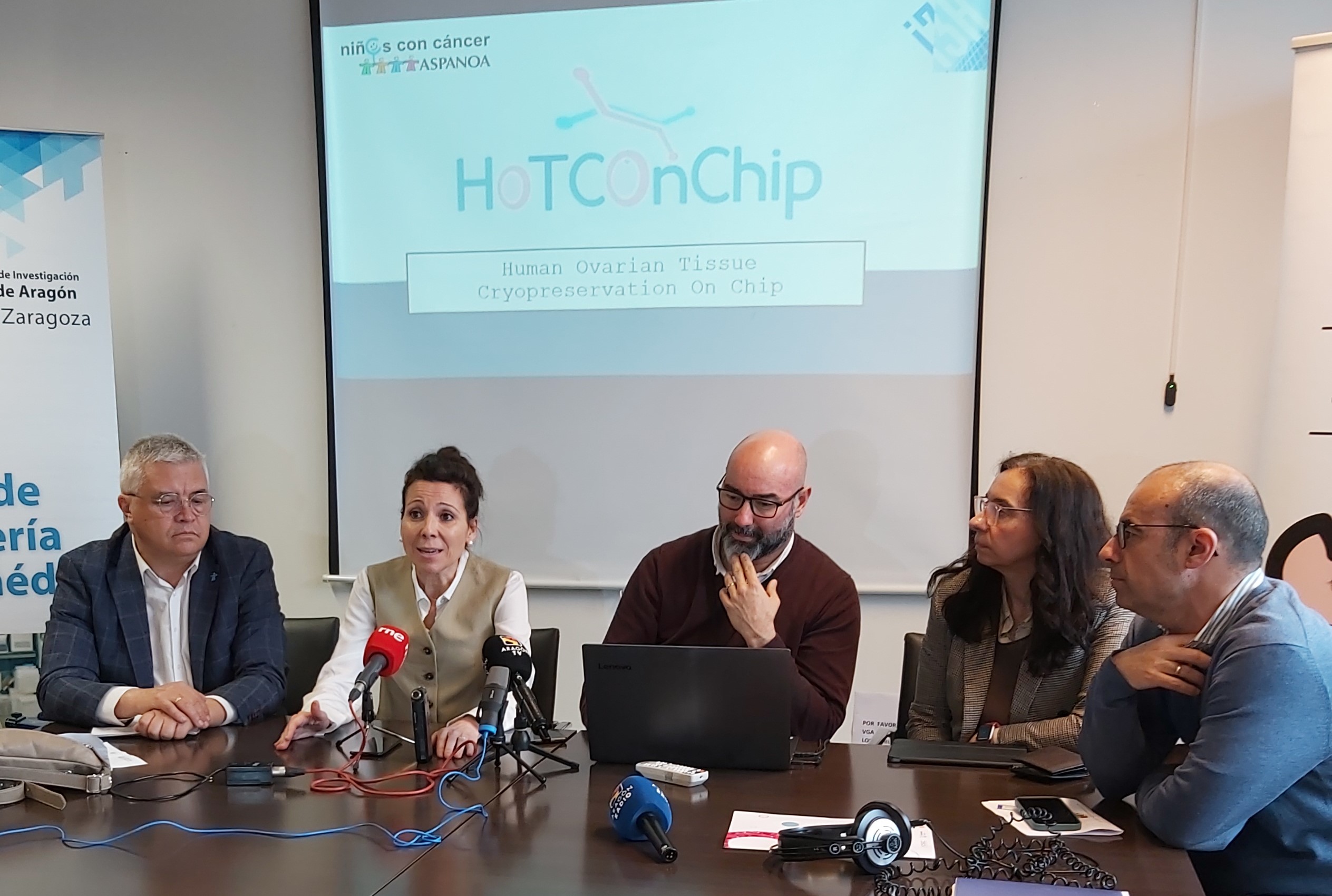
Around 30% of girls who survive childhood cancer later have great difficulty in becoming mothers. These fertility problems stem from the aggressive treatments they receive to cure themselves, especially chemotherapy and radiotherapy. For this reason, the Aragon Institute for Engineering Research (I3A) has just started a project to improve the preservation of ovarian tissue in girls with cancer, within the Impulso Programme with Aspanoa.
The research is led by scientists Clara Malo and Iñaki Ochoa, from the I3A's TME Lab research group, and is being carried out thanks to funding from Aspanoa, specifically through the Chair that this association has with the University of Zaragoza for research into childhood cancer.
Ovarian tissue preservation is still performed in few hospitals in Spain because it is a pioneering technique and there is still much to be studied. "If the girl has already begun to ovulate, it is enough to freeze her eggs. But if the child has not yet begun the reproductive cycle, the only option is the preservation of ovarian tissue," explain the scientists.
The ovarian tissue that is currently removed from girls with cancer is frozen and then, when the time comes, transplanted. But in this process, 50% of the follicles or reproductive units are lost. Malo and Ochoa want to improve these poor figures through their project, which consists of studying the current freezing processes - such as the percentage of serum used or the relevance of the biofreezer currently in use - and, at the same time, developing the prototype of a commercial instrument to automate the process. The latter project will be co-developed with the company Beonchip, a spin-off of the TME Lab, and directed by Rosa Monge.
In fact, the researchers believe that a significant part of the poor preservation may be due to the fact that the current technique requires a lot of manipulation. "We are experts in microfluidics and we are going to use this knowledge to automate the process, so that any technician can carry out the preservation of ovarian tissue with the minimum possible manipulation, having total control over the environment, and making it as similar as possible to the characteristics of a uterus to favour its preservation," they explain.
The researchers have already done the first trials with sheep, whose ovarian tissue is very similar to human tissue, and in this project they will use tissue discarded from adult patients in order to optimise the technique before doing the final trials with paediatric tissue.
This is the project they are starting now, but in the longer term, they would like to test whether it is possible to develop mature eggs in the laboratory itself by artificially growing follicles from ovarian tissue taken from the girl. "This would allow the egg to be fertilised externally with the father's future sperm, and the embryo could be transferred directly to the mother, without the need for a second operation to transplant the ovarian tissue," they say.
Clara Malo and Iñaki Ochoa say that they are very excited about the support for their project: "There are very few groups working on this idea, we are all in contact, and we are convinced that it has great potential. This help from Aspanoa will surely allow us to move forward and continue to grow".
ASPANOA Chair of the Universidad de Zaragoza
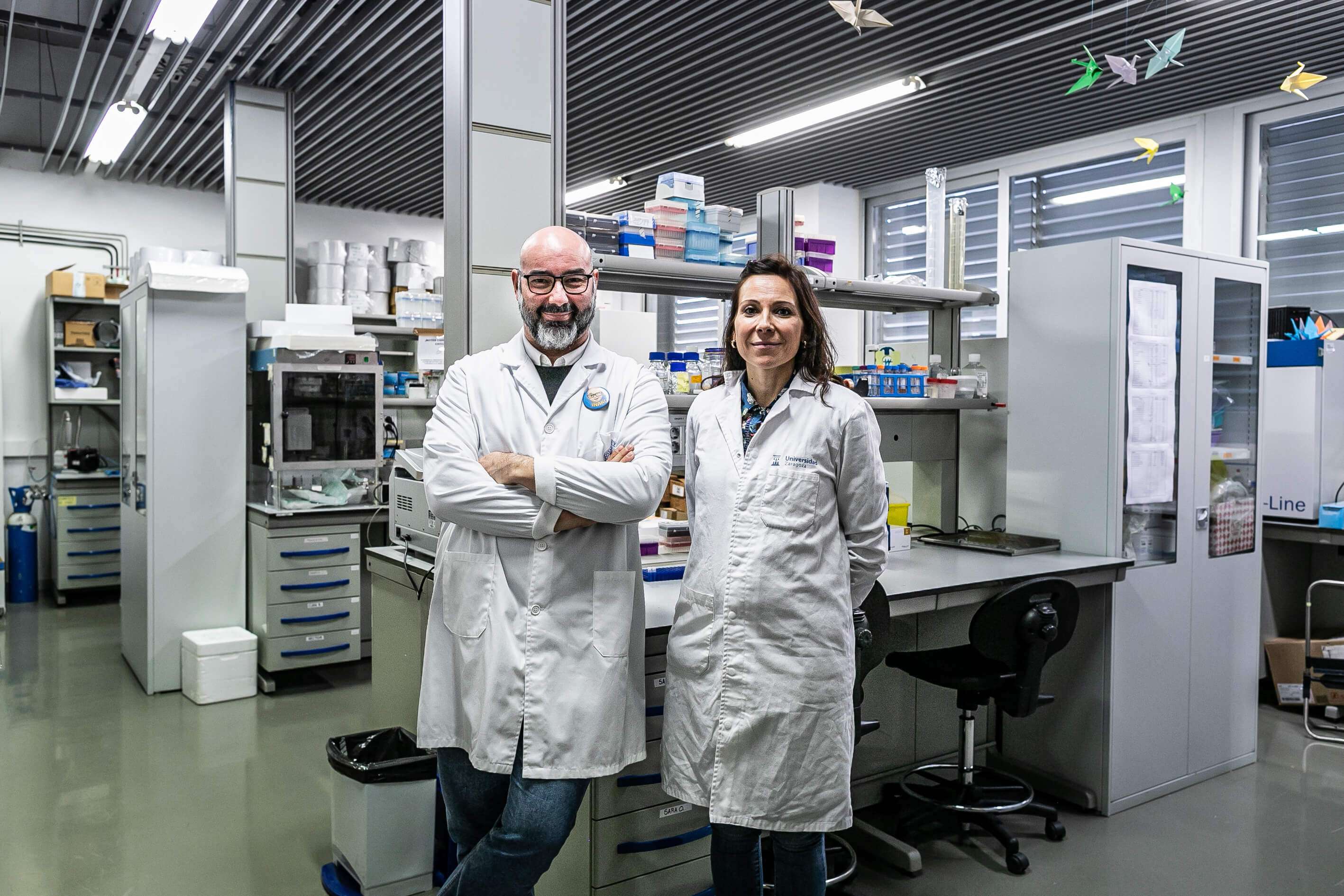
Signature of the laboratory photograph: Asier Alkorta
Photo of the press conference: I3A - Aspanoa
